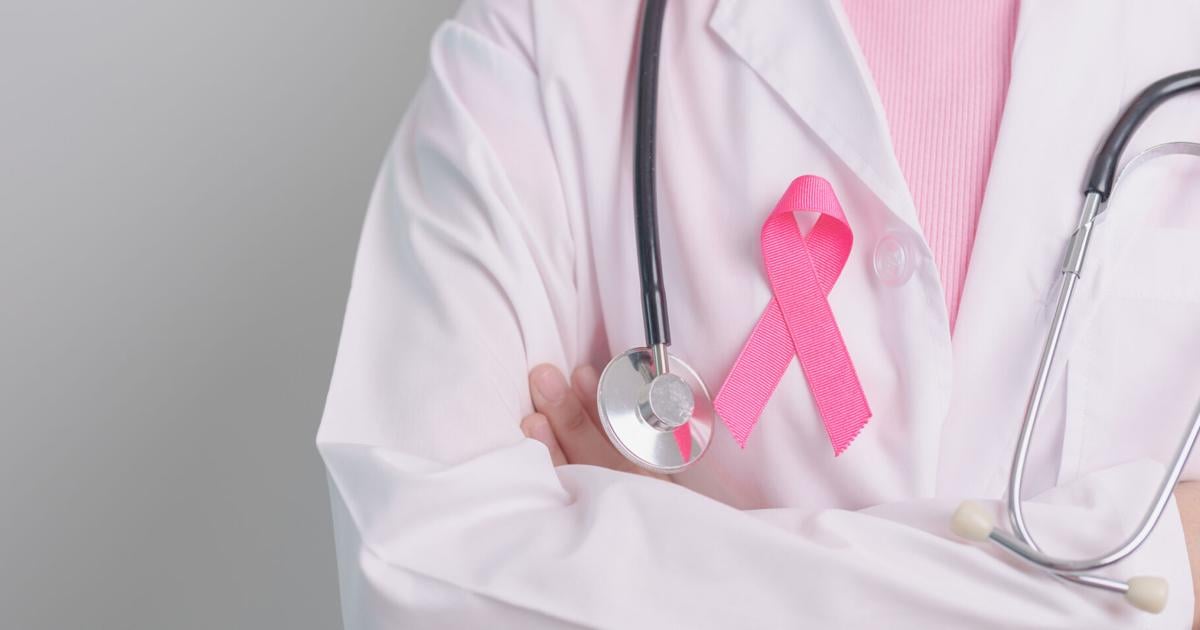
Breast cancer is a topic that stirs up a range of emotions—fear, vulnerability, uncertainty. While much about a breast cancer diagnosis is beyond our immediate control, like environment and genetics, there’s something reassuring about taking small yet significant steps that may help to tip the balance in our favor.
With so much advice out there, it’s easy to feel overwhelmed by all the things we ‘should’ be doing, especially related to cancer prevention.
To streamline things, I sat down with my colleague Laura Kerns, MPH, RD, Senior Clinical Dietitian with Ochsner MD Anderson Cancer Center, to narrow the scope to three key lifestyle factors that are within our control: managing weight, moderating alcohol and reducing processed foods.
Manage weight and increase muscle mass
For postmenopausal women, there is a significant relationship between weight and breast cancer risk, a 13% increase in risk for those who are overweight and a 25% increase in risk for those who are obese.
“What really matters is body composition – our ratio of fat mass to lean muscle mass,” says Kerns.
Our body fat is not dormant; it’s busy producing compounds that can be detrimental to our health. After menopause, our ovaries sharply decrease production of estrogen, and our body fat becomes one of the primary sources of estrogen. For a postmenopausal woman who is overweight with excess body fat, that body fat is actively producing estrogen, which can fuel hormone-positive breast cancer.
Sustained weight loss, even modest amounts, is associated with lower breast cancer risk for women aged 50 and older. Losing four to 20 pounds can mean a 10%-15% lower risk, and more than 20 pounds can translate to a 25% lower risk.
Obsessing over weight loss can be daunting, not to mention discouraging. Instead, Kerns recommends focusing on the positive: prioritizing increasing muscle mass through resistance training.
Alcohol: limit or omit it
There’s no way to sugar-coat it: Alcohol is a known carcinogen. It increases our risk of at least seven types of cancer, including breast cancer. And the more we drink, the higher our risk.
Women who have just three drinks per week have a 15% higher risk of breast cancer compared to women who don’t drink at all, and the risk goes up another 10% for each additional daily drink.
If you don’t drink, don’t start, advises Kerns. If you do drink, assess your relationship with alcohol.
“The decades-long recommendation of ‘not more than one drink a day for women, two for men’ doesn’t really hold true anymore,” Kerns explains. “But unfortunately, the official recommendations haven’t changed. If you do choose to drink, ideally limit it to social occasions, and to low- or no-sugar options.”
Be wary of processed foods
Processed foods, particularly those high in refined carbohydrates and added sugar, impact cancer risk. These foods can contribute to weight gain and increased body fat, but we’re learning that these processed foods also play a more targeted role in cancer cell growth.
“There’s a lot of conversation around the topic of sugar fueling cancer cells,” says Kerns, “but it goes deeper than that. Sugar raises insulin levels. Chronically high levels of insulin can suppress production of insulin growth factor binding proteins, which contributes to elevated levels of a compound called insulin-like growth factor 1, or ‘IGF1’. It’s these elevated levels of IGF1 that can potentially contribute to cancer cell growth.”
Aim to limit your intake of added sugar to not more than 20-25 grams per day. Kerns advises that most patients shift the emphasis to increasing protein intake while dialing back carbs. And when we do have carbohydrates, reach for whole grain, fiber-rich carbs over processed options.
Anti-cancer living
Kerns believes in an integrative approach in all aspects of cancer nutrition, from risk reduction to survivorship. She recommends the book, “Anti-Cancer Living: Transform Your Life and Health with the Mix of Six” (Viking Press, 2018), which focuses on social support, stress, sleep, exercise, nutrition and environment/minimizing exposure to environmental toxins.
“There tends to be a hyper-focus on nutrition, but keep in mind, diet is only one element,” Kerns explains. “If we don’t have all these other factors in place, not only can our energy feel out of balance, but we’re also doing ourselves a disservice in terms of cancer risk reduction and whole-body wellbeing and longevity.”
Molly Kimball, RD, CSSD, is a registered dietitian with Ochsner Health and founder of Ochsner’s Eat Fit nonprofit initiative. For more wellness content, tune in to Molly’s podcast, FUELED Wellness + Nutrition, and follow @MollykimballRD and @EatFitOchsner on social media.
